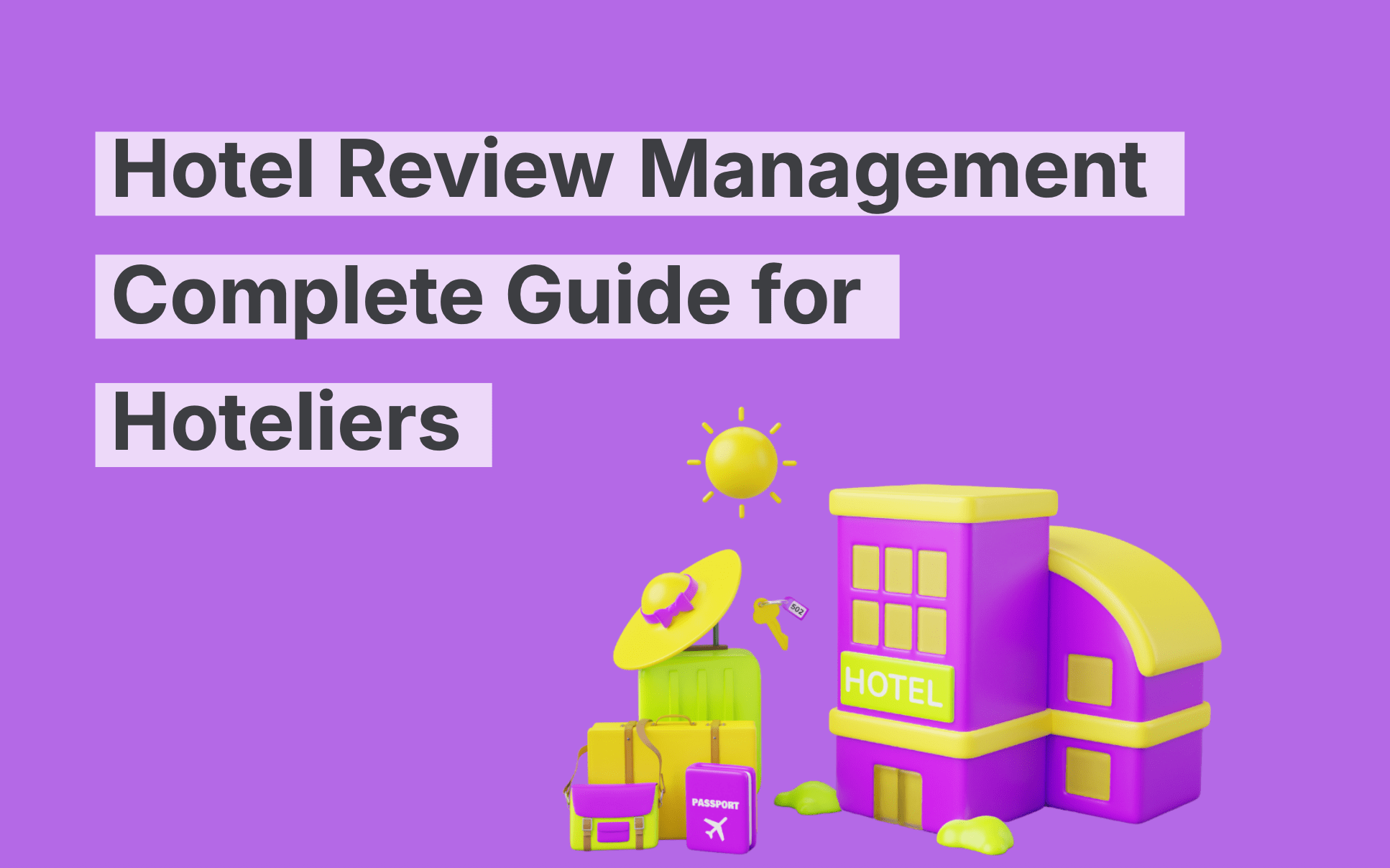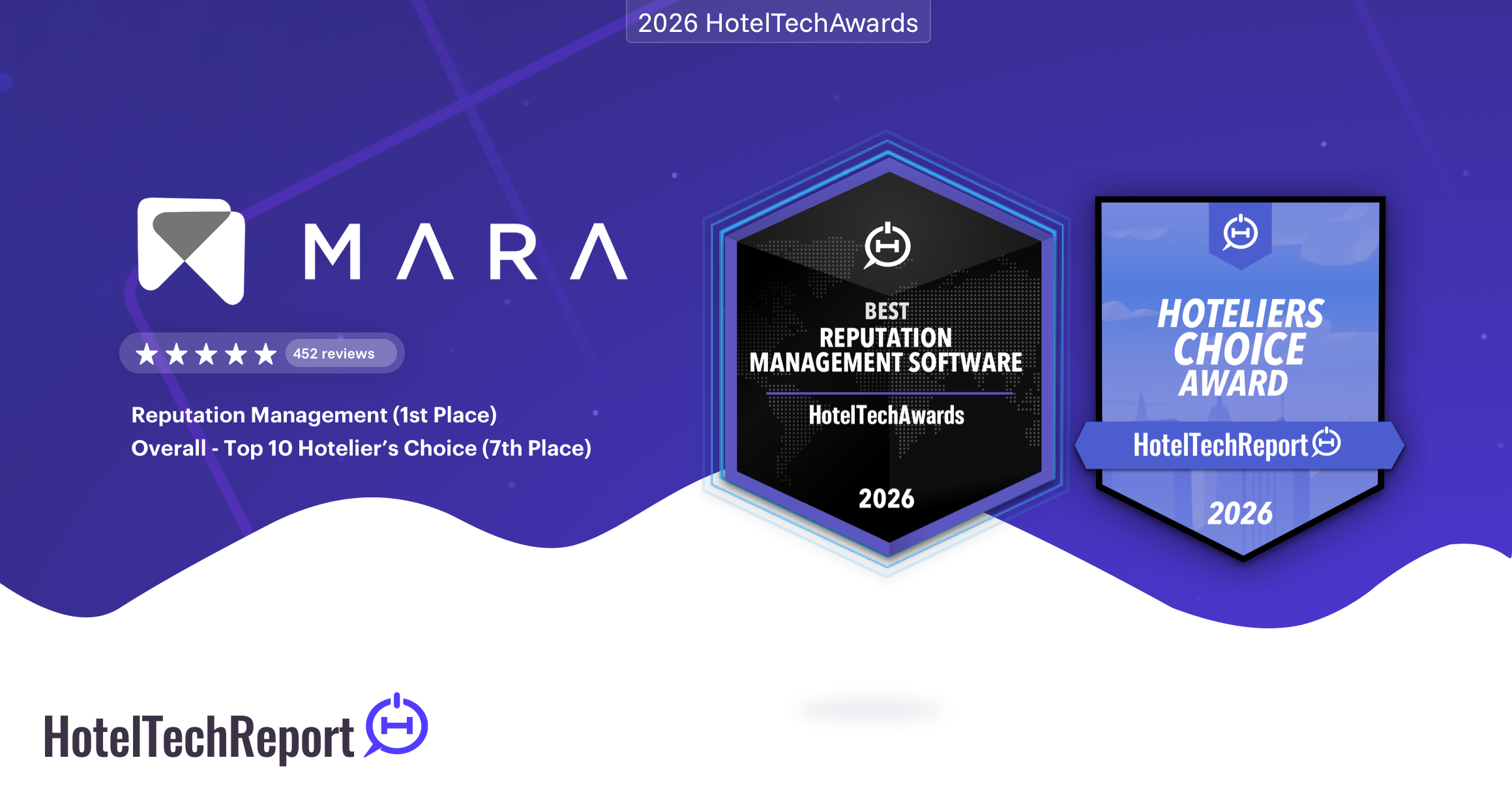A recent article by Forbes shows that 92.4% of consumers use reviews to guide most of their purchasing decisions. Despite all the research and surveys that prove how effective online reviews are, only 36% of small to medium enterprise businesses invest in review marketing.
Measuring online reviews' Return on Investment (ROI) can be tricky, but it's not impossible. This blog will explore how online ratings are calculated, how you can measure your ROI, and how to make the most out of each online review your business receives.
ROI of online review ratings by numbers:
- 92.4% of consumers use reviews to guide most of their purchasing decisions.
- Only 36% of small to medium enterprise businesses invest in review marketing.
- Most businesses with 4-star ratings generate 50% of conversion rates.
- A CSAT score above 75% is usually considered acceptable in most industry types.
- Nearly 78% of consumers feel that a business cares more about them when they respond to their reviews.
- Customers are willing to spend 31% more at a business with excellent reviews.
- 88% of customers trust online reviews as much as personal recommendations.
- 54% of consumers would avoid buying products if they suspect fake reviews were posted for a business.
- 95% of consumers become suspicious, suspecting censorship or fake reviews if only positive reviews are displayed and no negatives.
- At least 23% of consumers read reviews on the last day, 46% over the previous three days, and 65% in the last week.
- 68% of consumers are willing to pay a premium for business offers.
- Positive reviews allow businesses to raise prices by 11% for each one-point increase in the average review rating.
- 78% more people trust reviews than ads.
- 89% of consumers prefer texting over any other mode of communication, and 77% said they would leave reviews if asked.
- Integrating an AI review reply generator can lead to a 3x faster response time, improved online visibility, and increased overall star rating on review websites.

What are the different types of online review ratings?
To fully understand how you can compute the ROI of online reviews, it's imperative to know how online reviews are calculated. From average star ratings to point systems to using information from your customer survey scores, review ratings can impact what customers think about your business and their purchasing decisions.
Websites have varied methods when computing online reviews. However, here are the top four methods most online review websites utilize to calculate online reviews.
Star Ratings
Star ratings are among the most common online review calculation methods associated with Google Reviews. These star ratings ask customers to rank a business on a scale from 1 to 5 to measure their general experience. Some websites also ask customers to provide a narrative review to explain their rating.

Your average star rating significantly influences how many customers continue to your website and make a purchase. Surveys suggest that most businesses with 4-star ratings generate 50% of conversion rates. For this reason, it's crucial to increase your rating and gather more customer reviews to maintain an edge over your competitors.
Point-Systems
Online review websites acknowledge that posting online reviews can be really taxing for customers. Because of this, some websites allow customers to skip giving a full review and collect customer insights through a point system.
With this kind of ranking, customers are asked general questions like "How was your experience?" and ask them to rate from 1-10 (one being the lowest and ten being the highest).

Review point systems quickly gather consumer feedback and average rating. It provides easily understandable data about your online reputation, which can help you measure the effectiveness of your offers and services. Despite this, point systems are less likely to convince potential customers because they lack narrative reviews.
Net Promoter Score (NPS)
Big websites like Airbnb and Amazon use official customer survey scores such as Net Promoter Score (NPS). NPS is a proven metric that measures customer experience, consumers' perception of your brand, and revenue growth.

NPS allows customers to rate a business through a general question: "On a scale of 0-10, how likely is it that you would recommend [company name] to your friends, family, or business associates?"
While it may look like a Points System rating, NPS classifies customers based on their answers:
- Promoters (score 9–10): Devoted clients actively seeking new clients for your company.
- Passives(score 7-8): Clients who might be persuaded in one way or another to endorse you or a rival.
- Detractors (score 0-6): Clients who had a negative experience with your business and are very reluctant to recommend it to others.
This customer segmentation allows businesses to personalize their offers and services. For instance, companies can create a subscription plan for promoters, offer discounts and freebies to convert passives, and initiate a dialogue among detractors.
Customer Satisfaction Rating (CSAT)
Aside from NPS, businesses also use Customer Satisfaction Rating (CSAT) to measure how satisfied customers are with their offers and services.

CSAT uses a 1 to 5 measurement scale translated into narrative options.
"How would you rate your overall satisfaction with the product/service you received?"
- Very unsatisfied
- Unsatisfied
- Neutral
- Satisfied
- Very satisfied
The Composite Customer Satisfaction Score is then acquired through the average score generated by the respondents. The score is usually expressed as a percentage scale: 100% being total customer satisfaction and 0% total customer dissatisfaction. CSAT scores can vary significantly by industry. However, a score above 75% is usually considered acceptable in most industry types.
How to analyze the ROI of online review ratings?
Now that you know how most online review scores are calculated, let's now proceed on how you can measure the ROI of online reviews.
Identify KPIs
The first thing that you have to do is to identify the KPIs of your review management process. This will help you measure and document your scores in relation to the goals you wish to achieve with your online reviews. Here are some of the KPIs you can use:
- Customer Acquisition - Measure how many new clients you've acquired after optimizing your online listing and improving your online review efforts.
- Brand Awareness - Track your total number of reviews, increase in online traffic, and search ranking to determine your brand awareness and how reviews contribute to that awareness.
- Customer Experience - Measure your star rating, the total number of good reviews, and the increase in the total number of reviews you've collected to measure your customer experience improvements that are linked to your reviews.
By tracking these KPIs, you can see if your online review efforts are translating to actual business growth. Furthermore, they can provide insights on how you can improve your review management process.
Extract actionable insights
Aside from your KPIs, you can also measure the relevance and effectiveness of your online reviews by the number of actionable insights you can generate from your customer reviews. Regardless if it's from positive or negative reviews, these actionable insights directly affect your business as they allow you to boost your offers and services, thereby improving your revenue.
What is the ROI of positive online review ratings?
Positive online review ratings can have a significant impact on businesses. Responding to positive reviews can create a positive impression on potential customers, as nearly 78% of consumers feel that a business cares more about them when they see someone from the business replying to their reviews, even if those reviews are positive. This responsiveness signals good customer service and attentiveness, which can enhance trust and loyalty.
The influence of positive reviews extends beyond just customer perception. Customers are willing to spend 31% more at a business that has excellent reviews, indicating that positive online feedback can directly impact a company's revenue and growth. While word-of-mouth recommendations from friends and family remain a powerful reputation builder, online reviews also play a significant role, with 88% of customers trusting them as much as personal recommendations.
{{blog-cta="/features/product-updates"}}
What is the ROI of negative online review ratings?
Negative online review ratings are significant for businesses. 54% of consumers would avoid buying products if they suspect fake reviews were posted for a business, emphasizing the importance of transparency and credibility. Surprisingly, 95% of consumers become suspicious, suspecting censorship or fake reviews, underlining the need for authenticity when businesses only display positive reviews and no negatives. Responsibly addressing negative reviews is vital, as they provide valuable feedback to improve products and services and demonstrate a business's commitment to customer satisfaction, fostering trust and loyalty.
To learn more about spotting and avoiding fake reviews on your page, read our article Spotting Fake Google Reviews: A Guide to Identifying and Dealing with Fake Reviews.
What is the importance of investing in online reviews?
Numerous businesses are now improving their efforts in review management. Here's how online reviews can contribute to your business's revenue growth:
Generates insight to improve offers.
As mentioned a while ago, online reviews allow businesses to collect insights and improve their go-to-market offers. Look for common themes and patterns among the reviews, especially concerning product quality, customer service, pricing, and website usability. Furthermore, reviews can show shifting customer patterns and preferences. By keeping track of these changes, you can modify your offers and maintain a competitive edge in the market.
Read our complete article to learn more about using customer insights to improve your business strategies.
Boosts SEO and Local Ranking.
Google admits that online review websites such as Tripadvisor, Yelp, and Google Reviews play an important role in their search engine algorithm. The quantity, consistency, relevance, and recency of reviews can effectively help businesses rank higher on Google. This means that small to medium enterprises have the chance to outperform bigger competitors on online visibility through customer reviews.
To learn more about this, read our complete article How to SEO Optimize Your Review Responses.

For local searches, your business's relevance, distance, and prominence to the search request are frequently used to prioritize results. Recent surveys suggest that the top three to five Google search results get 68% of all clicks. For this reason, ensuring that your Google My Business Profile has your updated business location and contact information is essential. It should also have a consistent flow of Google Reviews.
To learn more about optimizing your Google My Business account, read Google My Business Guide: How to Optimize Your Profile.
Provides an opportunity for scalability.
Online reviews can help firms scale dramatically by influencing consumer trust and purchasing decisions. The fact that at least 23% of consumers have read a review on the last day, 46% over the previous three days, and 65% in the last week indicates that reviews play a vital role in shaping consumer perceptions.
Whether positive or negative, engaging in customer reviews demonstrates your dedication to your customers, improving your brand's reputation. It's also an effective way to inspire more customer reviews, allowing you to generate more customer insights for your offers.
Offers opportunity to upsell and cross-sell offers.
Online review ratings can be instrumental in helping businesses upsell or cross-sell products and services. Positive reviews significantly impact customer loyalty and willingness to spend, with 68% of consumers willing to pay premium for business offers. Moreover, positive reviews give businesses price flexibility, allowing them to raise prices by 11% for each one-point increase in the average review rating, enhancing the potential for upselling.
Provides high-converting marketing assets.
Because they reflect authentic customer experience, online reviews are considered more effective than traditional marketing. In fact, a 2019 American Association of Advertising Agencies survey shows that 78% more people trust reviews than ads.
Positive reviews can be used as social proof across their websites, social media channels, and even physical marketing materials. Aside from highlighting the quality's offers, they can be used to show the legitimacy and trustworthiness of the company. Online reviews can be a powerful tool for attracting and converting potential customers into loyal ones.
Rebuilds relationships with dissatisfied customers.
Online reviews can mend relationships with dissatisfied customers by showing the company's commitment to addressing their concerns and enhancing customer happiness. When handled properly, negative reviews show that the company values customer feedback and is dedicated to resolving issues promptly and effectively. Responding to negative reviews with empathy, offering solutions, and taking steps to rectify the problems can go a long way in rebuilding trust and loyalty with dissatisfied customers. By being transparent and showing a genuine desire to improve, the company can turn unhappy customers into satisfied ones and showcase a customer-centric approach that fosters positive relationships in the long run.
To discover ways to handle negative reviews, read our article Don't Let Negative Reviews Ruin Your Business: Examples & Tips.
Aside from this, online review ratings also help business owners rebuild their online reputation. A vast majority of consumers, 81% to be precise, specifically research a business before making a decision. A steady flow of positive reviews provides enough social proof to foster confidence in potential buyers, encouraging them to move forward with their purchase.
How to boost the ROI of your online review ratings?
While online reviews are powerful, businesses should still exert effort in monitoring and managing them. Here's how you can maximize the benefits of your online reviews:
Optimize online listings.
Make sure the information about your company is correct and consistent on all websites where customers can post reviews. Improve your online presence on review sites, Google My Business, social media, and other pertinent channels. To increase your website's exposure in searches, use high-quality photographs, give thorough descriptions, and use relevant keywords.
To learn more about the top online review websites, read Discover the Best Customer Review Sites for Your Business.

Streamline an efficient review management process.
Develop a review management process among your team to manage reviews quickly and effectively. Give particular team members the duty of routinely monitoring and responding to reviews. To ensure consistency among your responses, develop rules for the tone and content of your replies. To learn more about implementing an effective online review management process, read Optimize Your Online Presence and Save Time With Review Management Tools

It would also help to explore Artificial Intelligence (AI) tools to improve the efficiency of your review management process. AI technologies can help your team automate sentiment analysis, sort and categorize reviews, identify trends and patterns, and provide insights to improve products and services based on customer feedback. To learn more about AI tools for review management, read our article here.
Actively collect more reviews.
Encourage clients to post reviews upon purchasing a product or a service. To do this, you can send follow-up emails or pop-up website reminders. Providing direct links to your online review channels is highly recommended to create a simple and seamless review process for your clients.

It would also be great to use SMS to request reviews. Recent surveys suggest that 89% of consumers prefer texting over any other mode of communication. Furthermore, you might be surprised that 77% of consumers worldwide said they would leave reviews if only business owners would ask.
Highlight positive reviews and resolve negative ones.
Highlight positive reviews on your website, social media, and other marketing platforms. Positive comments and testimonials have a significant impact on potential clients. On the other hand, respond professionally and swiftly to negative comments. To demonstrate that you care about your customers' satisfaction, respond to bad feedback with empathy, provide solutions, and improve your offers.

To learn more about handling positive and negative reviews, read our complete article How to Respond to Online Reviews?
Use an AI reply generator to boost your response rate.
Integrating an AI review reply generator, like MARA, into the review management process offers significant advantages for businesses seeking a higher ROI from online reviews. Utilizing a sophisticated Generative AI algorithm, MARA crafts personalized, human-like responses to customer reviews in seconds, addressing specific content rather than relying on generic templates. These optimized responses help mitigate the impact of negative feedback and enhance the business's online visibility, leading to an increased overall star rating on review websites and a 3x faster response time.
Boost your online rating and get ROI through MARA.
Maintaining a high response rate and fast response time can be challenging, but it doesn't have to be with our AI Review Assistant, MARA. This intuitive tool is designed to streamline your Online Reputation Management process, making it more efficient, personalized, and time-saving. It offers the best and most personalized AI for responding to and analyzing your guest reviews.
Streamlined Review Inbox
The first step in optimal review management is having a streamlined review inbox that compiles all your reviews across various platforms into one comprehensive dashboard. Fortunately, MARA has it.
The Review Inbox connects to multiple review sources, including Google, Booking.com, and Tripadvisor, giving you a panoramic view of all your reviews. Your review inbox makes responding to reviews as simple as hitting "Generate reply" and clicking "Send". And you can even configure review response automation: Why not allow MARA to automatically respond to simple reviews, like 5-star Google reviews with no text, ensuring you never miss a review? Daily notifications about new reviews keep you updated and in control.

Actionable Insights from Review Analytics
Aside from boosting your online ratings, one of the most important benefits of online reviews is extracting customer insights that can help you pivot your offers into those that resonate with your customers.
To help you understand and analyze the multitude of reviews, the Review Assistant also incorporates Review Analytics. This provides actionable, easy-to-understand insights that are tailored exclusively to your business. With MARA, you can quickly get the gist of all your reviews without needing to read each one. The analysis is so detailed that you can find out about specific issues like "water in the pool is too cold" or "lack of vegan breakfast options.” These insights help optimize guest experience without requiring you to be a data expert.

Personalized Review Responses
Creating customer relationships for better conversion isn't just about efficiency; it's about personalization, too. MARA's Brand Voice feature allows the AI to adapt to your tone, making sure your responses sound authentically you. Plus, with Smart Snippets, you can "teach" the AI how to respond to recurring praises or complaints. Your AI then incorporates this information into its responses but always with different words, providing more personalized, relevant replies.
This review response assistant has quickly become a game-changer for over 2000 customers. Its promising capacity to elevate your overall rating, amplify response rates, glean insights from customer feedback, and economize both time and money is the reason behind its growing popularity.
Final Thought
Online reviews wield immense influence over a business's success, shaping consumer decisions and necessitating active management. By integrating online reviews into their strategy, businesses can harness customer feedback to spur growth and increase ROI. With tools like MARA, managing reviews becomes streamlined, allowing for personalized responses and actionable insights. Why wait? Try MARA today – it's free, hassle-free, and operational in under five minutes.
This post is part of our hero content series on “Online Reputation Management for Hotels - All You Need to Know".
Frequently Asked Questions:
While measuring the worth of online reviews may be challenging, their value lies in their ability to guide consumers' purchasing decisions, build trust, and improve a business's online reputation, ultimately impacting its success and revenue.
Yes, online reviews are beneficial for businesses. They can increase customer loyalty, boost SEO and local ranking, provide valuable insights for business improvement, and act as powerful marketing assets, ultimately leading to a higher return on investment (ROI).
Online reviews can significantly affect businesses by influencing consumer perceptions, driving customer acquisition, fostering brand loyalty, and enabling companies to address customer concerns and improve their products and services.
Online product reviews provide social proof, build consumer trust, and help potential buyers make informed decisions based on previous customers' experiences.
Yes. A strong online reputation enables businesses to raise prices by 11% for each one-point increase in their average review rating. Aside from this, research suggests that a 4-star rating can generate up to a 50% conversion rate.














































-min.avif)
